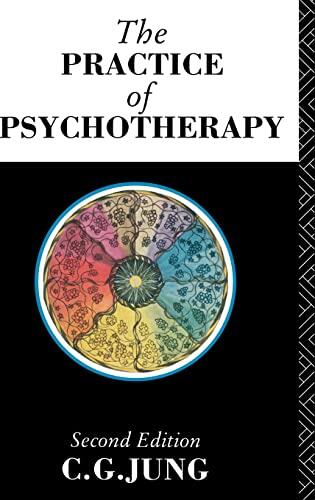
The Practice of Psychotherapy
によって
C.G. Jung
まだ評価がありません
形式
ハードカバー
ページ数
412
言語
英語
公開されました
Feb 1, 2016
出版社
Routledge
版
2
ISBN-10
1138135933
ISBN-13
9781138135932
説明
C.G. Jung, a pioneering figure in the field of psychology, invites readers into the complex and profound world of psychotherapy. His extensive collection of works offers an in-depth exploration of the therapeutic process, drawing on a wealth of clinical experience and theoretical insight. Jung delves into the intricacies of the psyche, highlighting the importance of understanding the unconscious mind and its influence on human behavior.
Throughout this collection, Jung emphasizes the significance of the therapeutic relationship as a catalyst for personal transformation. He uncovers the dynamics that play out between therapist and patient, advocating for a holistic approach that considers both psychological and spiritual dimensions. The transformative power of symbols, dreams, and archetypes is examined, providing readers with invaluable tools to navigate their own journeys toward self-discovery and healing.
Jung's writing is both scholarly and accessible, making complex psychological concepts tangible for a broad audience. His blend of depth and clarity opens up a dialogue about the nature of human experience, resonating with both practitioners and laypeople interested in understanding the mind.
As readers engage with these collected works, they will encounter not just a theoretical framework, but also a profound invitation to explore their own inner landscapes. The insights presented serve as a guiding light for those seeking meaning and purpose through the art of psychotherapy.
Throughout this collection, Jung emphasizes the significance of the therapeutic relationship as a catalyst for personal transformation. He uncovers the dynamics that play out between therapist and patient, advocating for a holistic approach that considers both psychological and spiritual dimensions. The transformative power of symbols, dreams, and archetypes is examined, providing readers with invaluable tools to navigate their own journeys toward self-discovery and healing.
Jung's writing is both scholarly and accessible, making complex psychological concepts tangible for a broad audience. His blend of depth and clarity opens up a dialogue about the nature of human experience, resonating with both practitioners and laypeople interested in understanding the mind.
As readers engage with these collected works, they will encounter not just a theoretical framework, but also a profound invitation to explore their own inner landscapes. The insights presented serve as a guiding light for those seeking meaning and purpose through the art of psychotherapy.